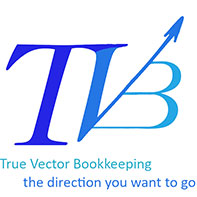To address the challenges faced by small businesses in accounting and bookkeeping, several solutions can be implemented:
- Invest in Accounting Software: Utilize user-friendly accounting software tailored for small businesses. Cloud-based platforms like QuickBooks, Xero, or FreshBooks offer affordable solutions for managing finances efficiently.
- Outsource Accounting Tasks: Consider hiring an external accounting firm or freelance bookkeeper to handle critical accounting functions. This can provide expertise while freeing up time for business owners to focus on core operations.
- Educate Yourself: Take advantage of online resources, workshops, or courses to improve your understanding of accounting principles and best practices. This knowledge can empower business owners to make informed financial decisions and better manage their finances.
- Create a Budget and Cash Flow Forecast: Develop a comprehensive budget and cash flow forecast to monitor income and expenses regularly. This helps identify potential cash flow issues in advance and allows for proactive management.
- Automate Processes: Implement automation tools for tasks like invoicing, expense tracking, and payroll to streamline processes and reduce manual errors. This can save time and improve accuracy in financial record-keeping.
- Stay Tax Compliant: Work with a qualified tax professional to ensure compliance with tax laws and regulations. They can provide guidance on tax planning strategies, deductions, and credits to minimize tax liabilities while avoiding penalties.
- Improve Record-Keeping Practices: Establish organized systems for record-keeping, such as digital filing systems or standardized templates for documenting transactions. Regularly reconcile accounts to maintain accurate financial records.
- Embrace Technology: Embrace emerging technologies like artificial intelligence and machine learning to enhance accounting processes, such as predictive analytics for cash flow management or blockchain for secure transaction recording.
- Negotiate Payment Terms: Negotiate favorable payment terms with suppliers to improve cash flow, such as extended payment periods or early payment discounts. Implement efficient accounts receivable processes to collect payments promptly from customers.
- Regular Financial Reporting: Generate and review financial reports regularly to track business performance and identify areas for improvement. Use key performance indicators (KPIs) to measure progress towards financial goals and adjust strategies accordingly.
By implementing these solutions, small businesses can overcome accounting and bookkeeping challenges, improve financial management practices, and achieve long-term success.

